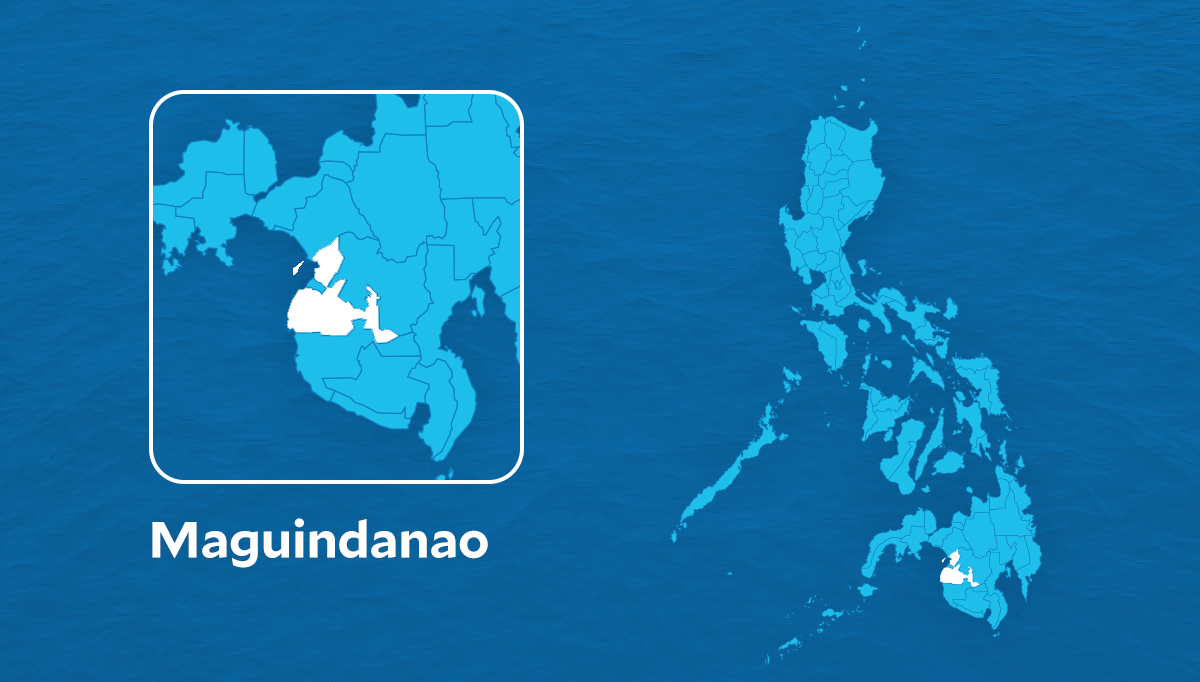DAVAO CITY, Philippines — A leader of the Teduray tribe warned that the ongoing normalization process that allowed the Moro Islamic Liberation Front (MILF) to claim ownership over its two former military camps within the ancestral lands of the Teduray-Lambangian would alienate the two non-Moro tribes from the land where they have been living for centuries.
“Once the normalization process starts and foreign donors start pouring in aid for the development of the two camps to assist former Moro combatants, the Teduray and Lambangian tribes in the area will lose their land,” said Timuay Labi Leticio Datuwata, supreme leader of the Teduray-Lambangian Timuay Justice and Governance.
“Before, we were displaced by war [between government forces and the MILF]. Now, in time of peace, we are being killed and kicked out from our ancestral lands,” he lamented.
READ: Teduray folk flee from armed men who looted their village in Maguindanao
Datuwata was referring to Camp Bad’r in Sitio Datul Pandan of Barangay Pandan in South Upi town and Camp Omar in Barangay Talibadok of Datu Hoffer town, both in Maguindanao del Sur. The two camps were among six former strongholds claimed by the MILF in the normalization annex of the Comprehensive Agreement on the Bangsamoro, the peace deal signed between the former Moro rebel group and the government in 2014.
Datuwata said that contrary to the MILF claims, the two camps sat within the 208,258-hectare land being claimed by the Teduray-Lambangian tribes as their ancestral domain.
READ: Another Teduray leader slain in Maguindanao
Datuwata stressed that this was not the first time that the tribes had raised the issue but have been continually ignored.
“In fact, we wrote tons of position papers expressing our concern [during the peace talks] and asking both panels, including the numerous peace groups supporting the talks, to include us in the discussion as far as those two camps were concerned. Or, if they could not accommodate us physically, we asked them to at least include our concern in the discussion,” he said.
READ: The Peacemakers: Tidurays find home
Double whammy
According to Datuwata, the inclusion of the two camps in the signed peace agreement between the government and the MILF had somehow “legalized the MILF’s occupation” of their ancestral land. “This has become a double whammy for us,” he said.
He added: “Since Camp Bad’r and Camp Omar within our ancestral domain have already been recognized as MILF camps, then, [this recognition] legalizes their (MILF) occupation in our area. We are no longer recognized [in our own ancestral domain]. Foreign donors who will start pouring in aid for the MILF camp transformation will be helping ease the Tedurays and Lambangian indigenous peoples out of their ancestral lands,” Datuwata said.
“We will be aliens, we have nowhere else to go,” he lamented.
He said the voices of the Teduray-Lambangian and other non-Moro indigenous peoples (NMIP) in the Bangsamoro were being drowned out by groups that dominate the discourse of the peace process.
Reacting to an Inquirer report on Saturday saying he had misrepresented the Teduray-Lambangian IPs, Datuwata said the Tedurays were already in the area long before Camp Bad’r was set up because the area had been part of their tribes’ ancestral domain.
Ignored pleas
This was among the reasons the NMIPs objected to the provision in the proposed IP Code in the Bangsamoro, which seemed to imply that the ancestral domain of IPs is a “shared” territory among the IPs in the Bangsamoro, he added.
Datuwata stressed that the NMIPs had ancestral domains separate from the ancestral domain of the Moro but their voices were not being heard even in the drafting of the proposed IP Code in the Bangsamoro.
“Of course, they allow us to talk during the forums, but in the end, they never considered the points that we raised,” he said.
Aside from the Teduray and Lambangian IPs, the Dulangan Manobos and the Erumanen Manobos were among the NMIPs that also called for the removal of Section 3(k) of the proposed IP Code, which declared Bangsamoro as a “shared ancestral domain” because, according to Datuwata, it implies that the land “has become a communal territory.”
Instead of treating the entire Bangsamoro as a shared ancestral territory, the NMIPs called for the recognition of their separate ancestral domain claim already being processed by the National Commission on Indigenous Peoples long before the signing of the peace deal that eventually created the Bangsamoro Autonomous Region in Muslim Mindanao (BARMM).
The NMIPs in BARMM include the Kamal, Manobo Dulangan, Teduray, Lambangian, Arumanen Manobo, Blaan and Higaonon, mainly in the Maguindanao provinces, Special Geographic Area (SGA) and Wao, Lanao del Sur; and the minority IPs on the island provinces of Basilan, Sulu and Tawi-Tawi, which include the Sama Bangingi, Jama Mapun and Sama Bajaus. These tribes also want their distinct identities as non-Moro to be recognized in the proposed IP Code, as provided in the Bangsamoro Organic Law.
